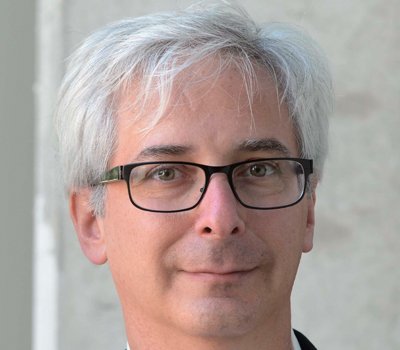Investigating how the mind exercises complex decision making
Everyone you know has a mind, but almost nobody knows how it works. You would never let someone build a bridge without learning physics or practice medicine without learning biology. Yet, we allow people to think for a living without knowing how their minds work.
Dr. Art Markman at the University of Texas at Austin investigates activities that people perform on a regular basis including generating new ideas, deciding where to eat for lunch, and how they communicate with other people. As a cognitive scientist, he explores a variety of different disciplines, from biology to artificial intelligence, to help us understand what the mind may be doing. To validate his theories, Dr. Markman develops experiments that predict the way that people will act and respond in various situations. Using data from those experiments, Dr. Markman can assess whether his theories provide a good explanation for human behavior.
-
Dr. Markman has examined the way people make decisions and how those decisions are influenced by the goals people pursue.
-
He is interested in the way people decide whether to explore new opportunities in the world or to stick with what has worked for them in the past.
-
Dr. Markman explores the way people form and use categories, and how those categories affect the way people make predictions about what will happen in the future.
- Additionally, Dr. Markman examines the way motivation affects thinking. For instance, people are motivated to approach positive outcomes and to avoid negative outcomes. Thus, Dr. Markman examines how this tendency influences the way people reason and make decisions.
Dr. Markman is highly dedicated to helping the public understand the benefits of research in behavioral sciences. Dr. Markman communicates the results of his research, and the results of research conducted by behavioral scientists across the globe to the public. He blogs regularly for venues like Psychology Today and Fast Company. He also has a radio show called, "Two Guys on Your Head." According to Dr. Markman, studies in his lab are ongoing and research is never completed - "We are always in the process of writing up completed studies for publications and taking what we have learned to design and run new studies." At this moment, he is exploring how criminal investigators use their knowledge of crimes to make decisions about leads to pursue in investigations
Bio
Dr. Art Markman is the Annabel Irion Worsham Centennial Professor of Psychology and Marketing at The University of Texas at Austin. He is also the Founding Director of the Program in the Human Dimensions of Organizations. The HDO program brings the humanities and the social behavioral sciences to people in business.
He got his Sc.B. from Brown University and his Ph.D. from the University of Illinois. Before coming to The University of Texas at Austin, Dr. Markman taught at Northwestern University and Columbia University.
Dr. Markman's research explores thinking. He has studied the way people form and use analogies, the mechanisms of decision making, the modes that allow people to form categories, and the influences of motivation on reasoning. Dr. Markman is also the executive editor of the journal Cognitive Science and is a former executive officer of the Cognitive Science Society.
Dr. Markman has always been interested in bringing insights from Cognitive Science to a broader audience. To that end, he writes blogs for many sites including Psychology Today and Fast Company. He consults for companies interested in using cognitive science in their businesses. Dr. Markman is also on the scientific advisory boards for the "Dr. Phil Show" and the "Dr. Oz Show".
Along with Bob Duke, Dr. Markman hosts the radio show "Two Guys on Your Head" for KUT Radio in Austin. "Two Guys on Your Head" is available as a podcast on iTunes and Soundcloud. You can also follow the show on Twitter.
When he's not doing things related to cognitive science, Dr. Markman can be found spending time with his family or playing sax in a blues band.
In the News
How To Deal With Jerks
If you're shy, bragging probable sounds like your worst nightmare. Psychologist Art Markman advises how to toot your own horn
Are little elements in your workplace making employees feel like they can't be trusted?
Helping recent grads transition to the real world
Feeling overworked? Getting caught up in the hype of the next big thing? Trying to do more with less? Most of the problems that we think are unique to out hyper-connected times been around longer than we realize
Publications
Videos
Awards
2009 Fellow
Cognitive Science Society
2009 Raymond Dickinson SWC Centennial Endowed Teaching Fellowship
Presented by University of Texas
2006 Best Paper Award
Presented by the Journal of Consumer Research
WW Health Centennial Fellow, 2005-present
Presented by the ICC Institute, University of Texas
2003 Fellow
Presented by the American Psychological Society
1988 Departmental Honors
Departmental Honors in Cognitive Science
1988 William Gaston Fund Prize for Excellence in Cognitive Science
Presented by Brown University


